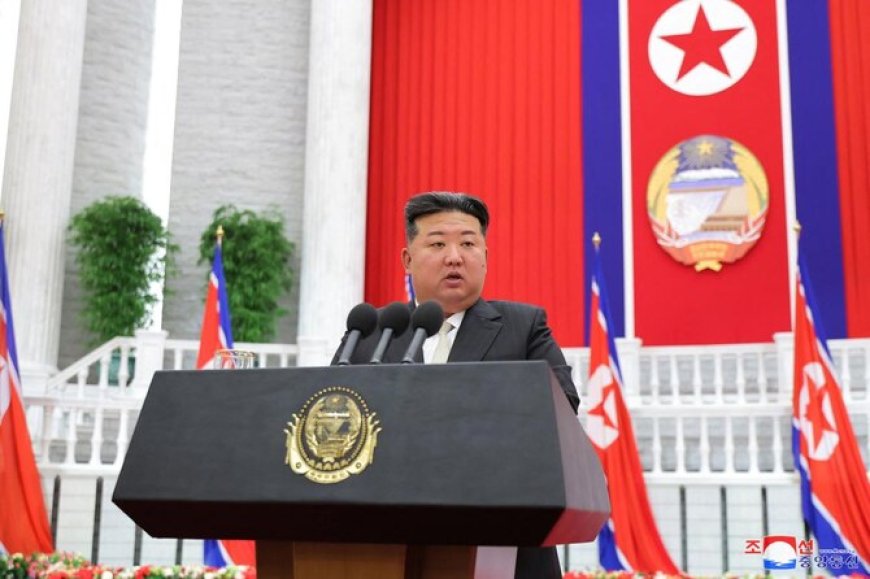In a bold declaration on the 76th anniversary of North Korea's founding, Supreme Leader Kim Jong Un announced a dramatic expansion of the country's nuclear arsenal. Speaking to a crowd in Pyongyang, Kim asserted that North Korea is embarking on an aggressive policy to increase its nuclear weaponry "exponentially," according to state media KCNA.
Kim's speech underscored the regime's belief that it faces a "grave threat" from a US-led military alliance, which it perceives as a nuclear-centric bloc aiming to undermine regional security. He emphasized that bolstering North Korea's nuclear capability is essential for safeguarding the nation's sovereignty and enhancing its defensive posture against perceived external aggressions.
The announcement comes amid heightened regional tensions, with recent developments in international security and military collaborations adding to the volatile landscape. On the same day as Kim's speech, South Korea's Deputy Defense Minister for Policy, Cho Chang-rae, along with his US and Japanese counterparts, condemned North Korea's recent diversification of its nuclear delivery systems. This includes the testing and launching of multiple ballistic missiles.
During a trilateral meeting in Seoul, the three nations reaffirmed their commitment to reinforcing their cooperative security framework. The joint statement, released by the US State Department, highlighted plans to conduct a second trilateral military exercise, codenamed Freedom Edge, to enhance deterrence capabilities and ensure regional stability.
In parallel, South Korea is hosting a defense ministerial meeting with members of the United Nations Command (UNC), which oversees the heavily fortified border with North Korea. The UNC, led by the US military commander stationed in South Korea, recently welcomed Germany as the newest member, adding to the force's capabilities in monitoring and defending the border region.
North Korea has vehemently criticized the UNC's role and Germany's participation, labeling the command as an "illegal war organization" and accusing it of exacerbating tensions in the region. These criticisms reflect the broader geopolitical strains and the complex dynamics of international relations surrounding the Korean Peninsula.
As North Korea intensifies its nuclear ambitions, the global community remains on high alert, with ongoing diplomatic efforts and military strategies aimed at mitigating the risks associated with the country's expanding nuclear capabilities.














































